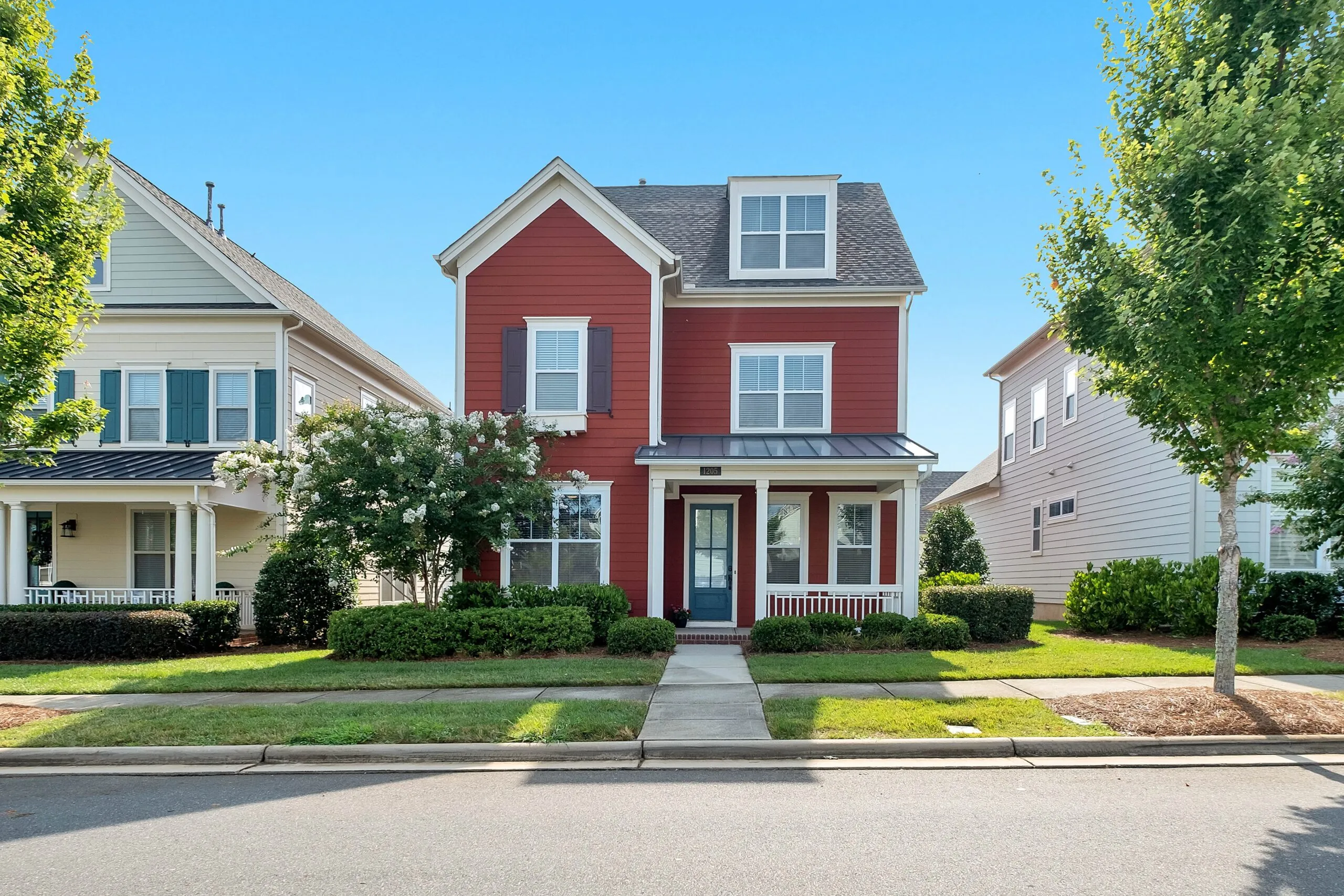Should I Sell My House Now?
Click here to browse our Real Estate Agent Directory and contact top-rated agents in your area!
Deciding to sell your house is a big decision. You may spend weeks or even months going back and forth on whether you should sell, or stay in your home. But once you’ve decided to list your property, there’s no guarantee it’s the right time to sell. That’s why it’s important you stay up-to-date on the local housing market and are clear about your goals as a seller.
Many scenarios call for a home sale, such as the need to upsize for a growing family or move across the country for a new job. You may also consider selling your property if you’re struggling to keep up with your monthly payments. In some cases, selling your home may the only way to avoid foreclosure.
Sellers can increase their chances of having a successful home sale by first understanding the current state of the market, and secondly, assessing the benefits to selling now vs. selling later. If you’re asking yourself, “should I sell my house now?” consider all of the following points before making a final decision.

Current U.S. Housing Market Conditions
Overall, the real estate market is cooling off, although home prices remain relatively high. After the post-pandemic real estate boom it was only a matter of time before the market leveled out again. With the looming fear of an upcoming recession, prospective homeowners are naturally nervous about their future investments, which may deter buyers from moving forward with a purchase.
>> AGENT ANSWERS: How much does a kitchen remodel increase home value?
Even with a recession present, buyers are expected to return to the market as interest rates fall and demand picks back up. When inflation peaked at 9.1% in June 2022, the Fed was already steadily increasing interest rates in an attempt to control the highest rate of inflation since the 80’s.
As for existing homeowners who have been in their homes for at least a few years, they’ll notice their property values have gone up, although they may not be quite as high as in the peaks of 2021. If you’re considering selling your home, it’s important you know that the market is cooling, which will likely bring home prices down in the near future.
Additionally, mortgage interest rates are still relatively high, standing at 6.66% as of late March. The Fed is expected to address rising mortgage rates this year, but it’ll take some time before buyers consider it a good time to borrow again. At the same time, median home prices in February saw a year-over-year decline for the first time in over a decade, according to the National Association of Realtors (NAR).
However, several local markets across the country such as Charlotte, Cleveland, and Pittsburgh remain a seller’s market this year. High demand and low supply will almost always result in higher home prices. According to the NAR, housing inventory continues at a low of 2.6-months, which means that in the U.S. it’s largely a seller’s market.
When to Sell
As a seller, you want to list your home when you have the highest chances of selling quickly and for the highest prices. Any real estate agent looking out for your best interest will tell you the same. Homeowners usually consider selling their homes when one of the following scenarios is present in their lives.
When mortgage interests rates are low
Historically, sellers find it easy to sell fast and at their price point when interest rates are low. This is because more buyers enter the market, tipping the scales in favor of sellers. As of April 10th, the national average for mortgage rates for a 30-year fixed loan are 6.73%. Although mortgage rates certainly have been higher in the past, this is still considered a relatively high rate for most buyers, many of whom prefer a mortgage rate of 4.75%, or less.
When housing inventory is low
Less homes available for purchase and more buyers entering the market is good news for sellers. Low inventory provides sellers with more bargaining power because buyers have less properties to choose from. Typically, a 6-month supply is considered a balanced market. As of February 2023, the national supply of housing inventory hovered at around 2.6 months.
When property value has grown
If you’ve been living in your home for a long time, chances are you’ve accumulated a decent amount of home equity. Ideally, you could sell your home, cash out, and reinvest when the market is favorable for buyers. You could also sell and downsize if you’re an empty-nester and no longer need as much space. If you’ve noticed a lot of newcomers to your city or neighborhood, your home’s property value may have grown due to increased demand. In either scenario, selling is generally a good idea.
When you’re behind on your mortgage payments
Although it’s preferable to sell when you’re able to turn a profit, unfortunately, that’s not always the case. Sudden changes in your income or other major life event could cause you to fall behind on your monthly mortgage payments, in which case selling your home may be the only way to avoid foreclosure. It’s not an ideal situation, however selling your home in this scenario could be favorable. A monthly mortgage payment that is well beyond your budget isn’t sustainable.
When to Wait
On the other hand, there are several instances where selling your home may not be the best financial move. If it’s not the right time, your real estate agent will let you know when it may be a better time to sell. It’s important to assess the following factors before listing your property.
When mortgage interest rates are rising
Buyers are more willing to borrow when interest rates are low. Given that interest on a home loan can account for as much as 50% of your total mortgage payments, it’s in a buyer’s best interest to secure a mortgage loan when rates are low. However, determining what is a ‘good’ interest is tricky, because the answer depends on the current state of the market. Buyer demand is heavily influenced by their ability to borrow money, so pay close attention to whether interest rates are rising or falling.

When housing supply is rising
A large supply of housing inventory gives buyers an upper hand in negotiations because they have more options to choose from. This is especially true if housing supply is rising due to new builds, which are often more desirable properties than existing homes. If your home is old, remote, or in need of renovations at a time where housing supply is abundant, you have fewer buyers interested in your property.
>> AGENT ANSWERS: How long should I have to wait before relist my house?
If you haven’t built much equity
It takes time to build up home equity. For most homeowners, it takes about five to 10 years to build up 15% to 20% of home equity. You don’t want to sell your home too early because this lowers your cash-out potential. Given that 9%-10% of your home’s sale price will go towards selling fees, it’s best to build up at least 15% in home equity before selling to make sure you can turn a profit.
If you’ve recently refinanced
Mortgage rates hit record lows of 2.68% in 2020 and 3.1% in 2021, causing many homeowners to refinance their mortgages. It probably won’t make financial sense for you to sell your home when you’ve recently refinanced or taken out a new mortgage. You could actually lose money by doing so. This is because when homeowners refinance, they pay closing costs and other fees as part of the refinancing process.
If your home is in poor condition
A long list of home repair issues is enough to turn away even the most frugal buyer. If your home is not up to par it’s probably best to postpone selling it until renovations can be done. Showing your home in the best light and in functional condition will attract favorable offers.
If you face steep capital gains taxes
Lastly, you want to consider the amount of capital gains taxes you may have to pay as a result of your sale. Capital gains taxes are paid when an investor makes money on an investment that is sold. If you purchased your home as an investment property, you’ll have to pay taxes when it is sold to a new owner.
Living on the property for an extended period of time may absolve you of having to pay capital gains taxes on your home sale. Ideally, you will have owned and lived in your home as your primary residence for at least two years, but five years is better. However, it’s best you consult an accountant to determine your tax responsibility.
Ask a Qualified Real Estate Agent, ‘Should I Sell My House Now or Wait?’
In 2023, the national real estate market seems to be shifting away from seller’s and towards buyer’s, characterized by declining home prices and increasing housing supply. According to Norada Real Estate Investments, homes are spending 18 extra days on the market compared to this time last year.
As long as sellers are mindful of and willing to adapt to current market conditions, they could still have a successful proeprty sale. It’s important to make sure that your home is in good condition, appropriately priced, and effectively marketed to combat the woes of a prolonged sale.
If you’re asking yourself, “should I sell my house or wait until next year?,” consider your home’s financial situation and local market conditions. Consult with one of the top real estate agents in your area before making a final decision. They’ll help you understand when is the best time to sell your home.





